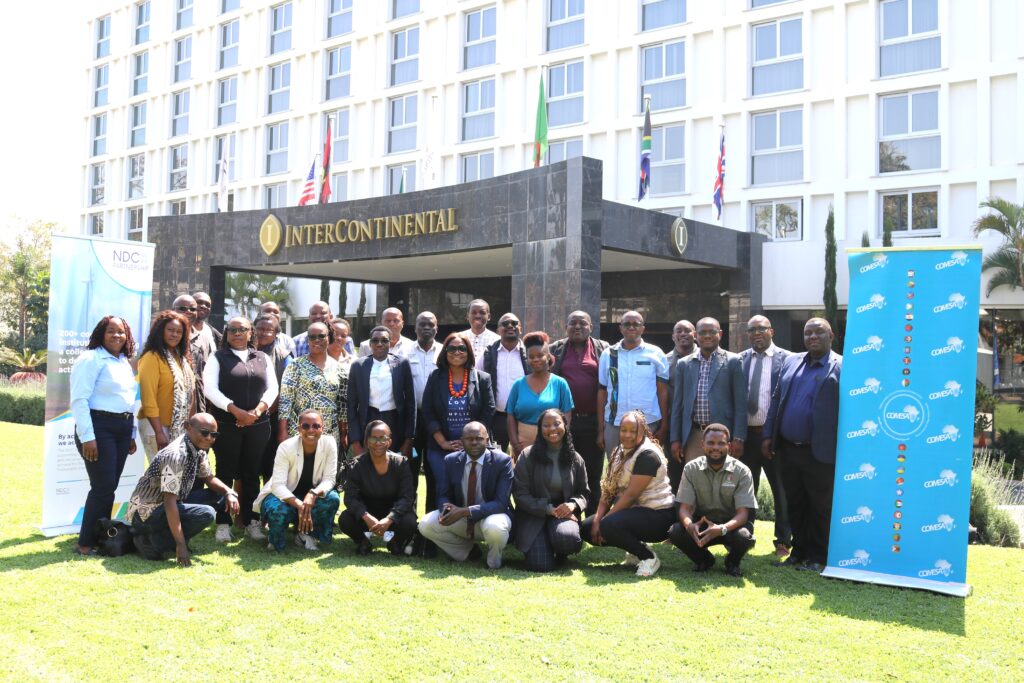
The Zambian government through the Ministry of Finance and National Planning and the Ministry of Green Economy and Environment, in collaboration with the COMESA Climate Change Unit, convened a four-day Roundtable Discussion on Climate Change Budget Tracking and Coding in Lusaka. The meeting held 19 – 22 August 2025 brought together senior government officials, technical experts and partners to advance efforts to integrate climate change into Zambia’s national budgeting processes.
The Roundtable builds on a new project being implemented by COMESA through a Partnership Action Fund (PAF) grant, secured in response to a request by the Government of Zambia to the NDC Partnership. The project aims to enhance climate finance management by developing codes for tracking annual budget allocations and expenditures on climate change activities.
The initiative has three key outputs which include Consensus on priority sectors and activities for inclusion and creation of budget allocation codes, Coding expenditures using the System Application and Product and the Integrated Financial Management Information System. In addition, there is training of officials from ministries and government spending agencies on the operation and management of the system.
During the Roundtable, participants reviewed international and national practices in climate budget tagging, categorized interventions into adaptation and mitigation sub-themes, finalized criteria and key performance indicators aligned to Nationally Determined Contributions (NDCs), and explored integration of climate codes into Zambia’s budget systems such as Output-Based Budgeting (OBB) and IFMIS.
In his remarks, Assistant Director for Budget Formulation at the Ministry of Finance and National Planning, Mr Lazarus Mwewa highlighted that the initiative will be piloted in two ministries by 2026 before scaling up to other Ministries. He noted that the project aims to create a workable system for capturing climate and biodiversity-related expenditures, provide backstopping support during budget consolidation, and address past challenges in accurately identifying and tagging climate expenditures. The budget coding tool will ensure data is captured more effectively and can be tracked.
Speaking on behalf of the Ministry of Environment and Green Economy Director Ephraim Shitima emphasized the urgency of mainstreaming climate change into national finance systems, citing recurrent droughts, floods, and extreme weather events as threats that risk undermining Zambia’s development gains. He stressed that effective climate budget tagging will improve accountability, strengthen resilience, and help Zambia access much-needed international climate finance.
The roundtable concluded with agreement on next steps for piloting the merged criteria and systems in the 2026 budget cycle. This pioneering project is expected to serve as a model for other COMESA Member States and institutions, ensuring that scarce climate resources are tracked, reported and used effectively.

